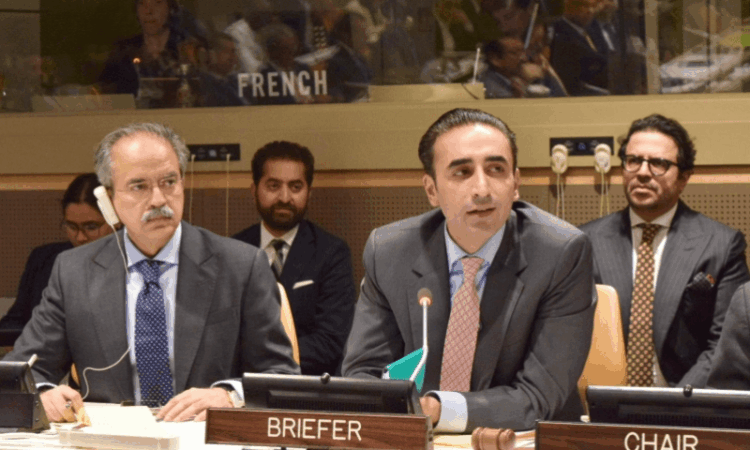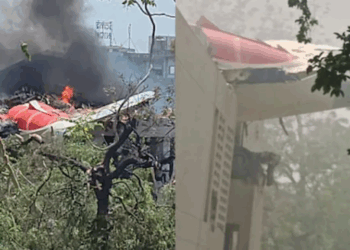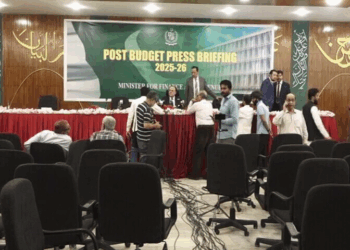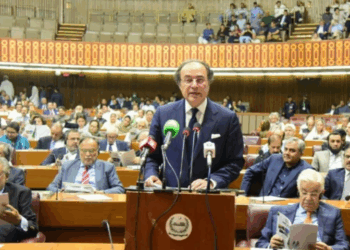New York, June 3, 2025: In a high-stakes diplomatic outreach, former Foreign Minister Bilawal Bhutto-Zardari led a powerful Pakistani delegation to the Organisation of Islamic Cooperation (OIC) envoys in New York, forcefully rejecting India’s allegations linking Pakistan to the recent Pahalgam attack and condemning its subsequent cross-border military actions as “unlawful and unjustified.”
Speaking at a special session with OIC Permanent Representatives, Bilawal said India’s accusations were made “without any credible investigation or evidence” and had been used as a pretext for cross-border strikes targeting civilians and infrastructure, a dangerous escalation threatening regional peace.
“We categorically reject this baseless linkage. Such military adventurism undermines regional stability and violates international norms,” Bilawal said, according to a statement by Pakistan’s UN Mission.
The high-level Pakistani team includes three former foreign ministers, Bilawal Bhutto Zardari, Hina Rabbani Khar, and Khurram Dastgir, alongside senior parliamentarians, former ambassadors, and a serving federal minister. Notable members include Senators Sherry Rehman, Musadik Malik, Faisal Sabzwari, Bushra Anjum Butt, and diplomats Jalil Abbas Jilani and Tehmina Janjua.
Arriving in New York on Sunday, the delegation is scheduled to visit Washington, London, and Brussels for continued engagement with foreign governments, international organizations, and think tanks. In Washington, they are expected to meet U.S. Secretary of State Marco Rubio, senior lawmakers, and policy analysts.
Bilawal also expressed concern over India’s suspension of the Indus Waters Treaty, calling it “a blatant act of weaponising water” and a violation of international and treaty obligations.
“We cannot allow this to become the new normal,” he asserted.
The PPP chairman warned that India’s actions have made the region “a less safe place,” and urged the international community — especially the UN and OIC — to uphold the principles of international law, the sanctity of treaties, and the UN Charter.
He reaffirmed Pakistan’s commitment to peace, restraint, and diplomacy, calling for full respect for the ceasefire, restoration of the Indus Waters Treaty, resumption of a comprehensive dialogue with India, A central focus on the Jammu and Kashmir dispute in line with UN Security Council resolutions.
The OIC envoys welcomed Pakistan’s transparent and timely briefing, reiterating their solidarity with Pakistan and the people of Jammu and Kashmir. They also emphasized the need to safeguard treaties like the Indus Waters Treaty, warning against the consequences of unilateralism.
Later, the Pakistani team met UN Security Council President Ambassador Carolyn Rodrigues-Birkett, who assured the Council’s continued commitment to peace and conflict resolution.
In separate briefings, the delegation engaged with Ambassadors of UNSC elected members: Algeria, Denmark, Greece, Guyana, Panama, Sierra Leone, Slovenia, Somalia, and South Korea, permanent members’ envoys, including China, Russia, and the U.S.
With China’s Ambassador Fu Cong, both sides agreed that aggressive posturing and unilateralism must be firmly opposed. In a meeting with Russian Ambassador Vasily Nebenzya, Pakistan emphasized that India’s allegations were premature and lacked investigation.
Meeting with U.S. Ambassador Dorothy Shea, Bilawal urged Washington to play an active role in facilitating a comprehensive Pakistan-India dialogue.
In a parallel development, Special Assistant to the Prime Minister Syed Tariq Fatemi met Russian Foreign Minister Sergey Lavrov in Moscow. Fatemi briefed Lavrov on Pakistan’s concerns over India’s escalatory steps, especially its threat to place the Indus Waters Treaty in abeyance.
Lavrov affirmed Russia’s support for normalizing Pakistan-India relations and highlighted ongoing and prospective bilateral projects with Pakistan in energy, connectivity, and trade. He also emphasized cooperation under the Shanghai Cooperation Organisation (SCO), particularly in counter-terrorism efforts.
Fatemi also delivered a letter from Prime Minister Shehbaz Sharif to President Vladimir Putin, reiterating Islamabad’s commitment to strengthening ties with Moscow.








